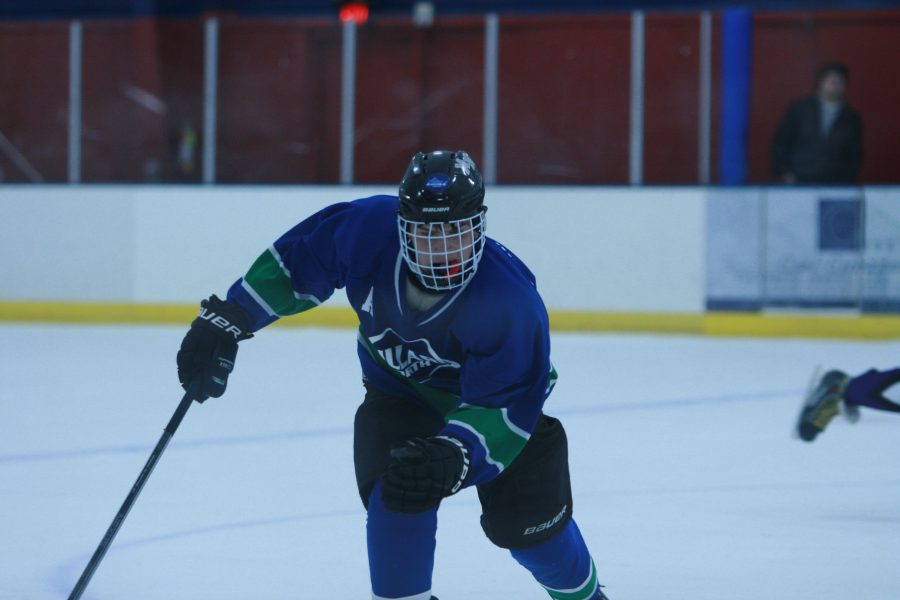Snapshot of a Slapshot
The importance of mental preparation and strength in hockey
During the winter, the many cacophonies of hockey are introduced. The crack of the stick. The scratching of skates against frozen ice. The slamming of bodies against walls. The hockey season is underway and players have groomed themselves physically for the season. However, they have paid more attention to preparing their mental approach towards the game.
The mental aspect of hockey includes several components. One of the best forms of mental preparation is visualization. This involves one focusing their energy and mind on images and situations during a game, in which they will be successful in, prior to the performance. Another facet of a strong hockey mentality includes fine-tuning your focus. Hockey can have several distractions, such as taunting from opponents and screaming parents and coaches. A player must learn to block out these diversions that can hinder one’s ability to succeed. It’s imperative to stay focused on the task at hand.
A player might think hockey is just another winter sport, but in fact, the training for it differs greatly from that of any other sport. One of the biggest aspects of success in hockey is preparing yourself to be physically, but more importantly, mentally stronger than your opponent. Senior Dominic Zambuto, a member of the Omaha Junior Lancers (OJL) High School Travel Team, can attest to the varied style of training that hockey requires.
“Training in hockey is different than most sports because it is played on ice, so most of the training is based on how to be faster and mentally stronger than your opponent while skating on the ice. Hockey players specifically work on increasing their foot speed, explosive power, and lactic acid tolerance. Yet, most of the game is played in your head,” Zambuto said.
Although Zambuto isn’t a member of the MN squad, hockey teams everywhere demand this type of training in order for their players to be successful in games. The mental toughness of a player is highly regarded as the deciding factor in one’s success or failure in hockey.
Sam Nelson, a senior who plays center on the MN hockey team, agrees with the importance of enhancing one’s mental game in the sport of hockey.
“It’s tiring and ou have to keep pushing the whole game. Mentally, you can’t be scared to be hit or to make a mistake. You have to play your game and leave it all on the ice,” Nelson said.
Other than the emphasis of the significance of mental toughness, MN hockey practices tend to be very typical.
They begin with warm-ups, which could include edge work or stretching. After warm-ups, the team practices passing with some drills Coach Whener draws up. Then, they work on shooting and basic positioning during breakouts or screening the goalie. Nevertheless, if the players are not mentally engaged, head coach Mark Whener will ensure that their minds are in the game during conditioning. Junior center Ryan Sasse describes the physical and mental conditioning for the MN hockey squad.
“Typically, we end practice with some sort of scrimmage or a competitive game. If we slack off during practice, Coach Whener will make us skate suicides or do other forms of conditioning,” Sasse said.
Mental toughness is constantly belabored in the sport of hockey. If a player strives to be successful, they must acquire the mental aspect of their game. Though it’s one of the most mentally exhausting sports to play, many students enjoy playing hockey due to the relationships and brotherhood they form on the ice.
“It’s fast-paced, physical, and you play for the guy next to you. I have made countless lifelong friends through hockey and it has been an amazing experience,” Nelson said.


